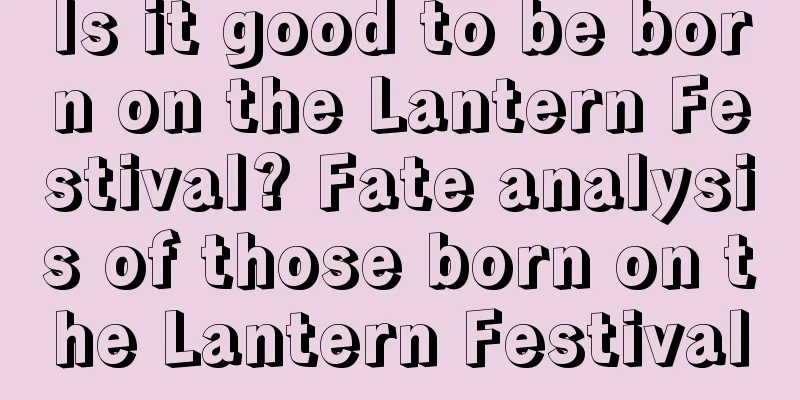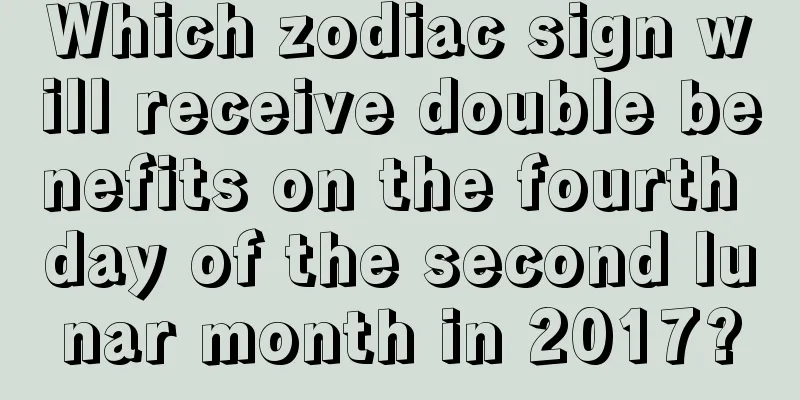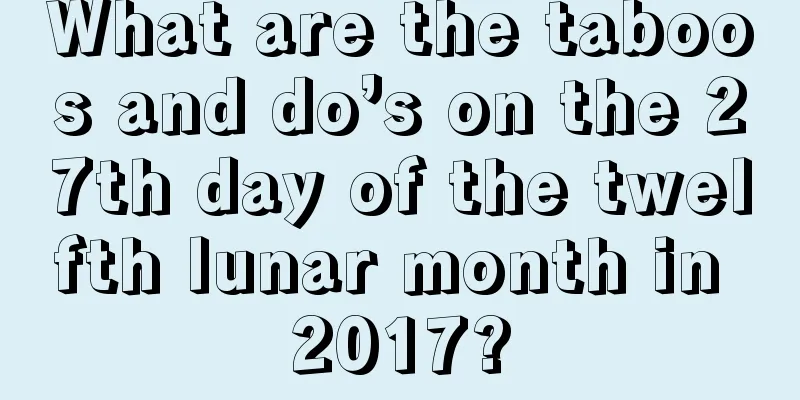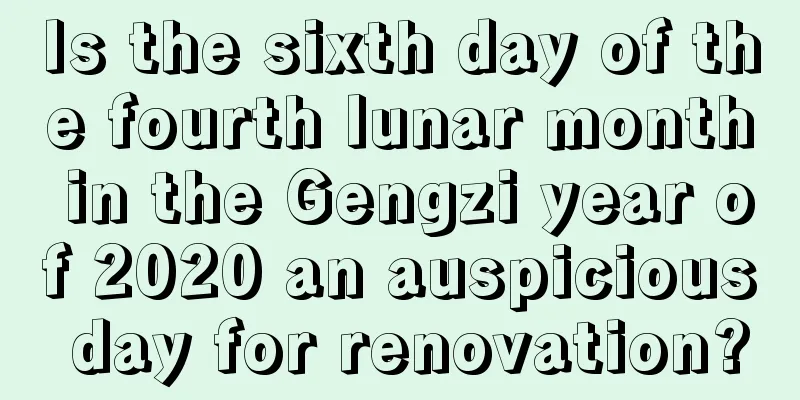What is the difference between Zhongyuan Festival and Xiayuan Festival? What is the origin of Xiayuan Festival?
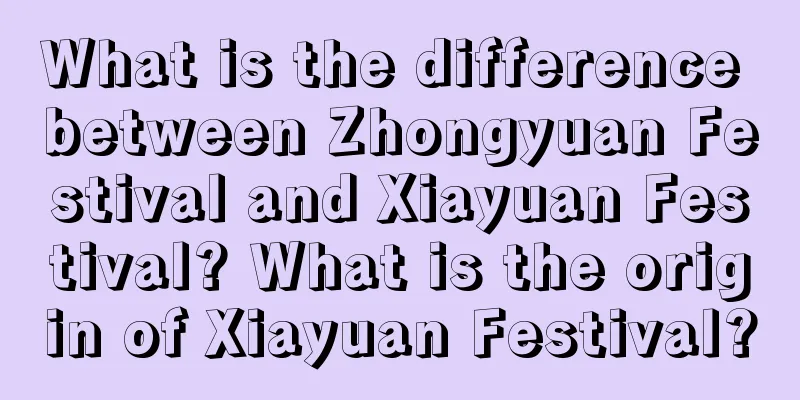
The Zhongyuan Festival and the Xiayuan Festival are both traditional Chinese sacrificial festivals, but in addition to the difference in time, there are also differences in the content of the sacrifices. So, what is the difference between the Zhongyuan Festival and the Xiayuan Festival, and where does the Xiayuan Festival originate from? The wind in the tenth month of the lunar calendar is blowing, the leaves are falling and flying all over the sky, and winter is coming. Shuimoxiansheng.com will help you learn about the tenth month of the lunar calendar in 2019.What is the difference between the Zhongyuan Festival and the Xiayuan Festival?Ghost Festival:The Zhongyuan Festival, also known as the Mid-Autumn Festival, the Fourteenth Day of the Seventh Month, the Ancestor Worship Festival, the Ullambana Festival, and the Earth God Festival, has festival customs that mainly include worshiping ancestors, releasing river lanterns, worshiping dead souls, burning paper ingots, and worshiping the land. "Zhongyuan Festival" is the name given by Taoism, and it is commonly known as "Mid-July" (or "Fourteenth Day of July") in the folk society. Its origin can be traced back to the ancestor worship and related sacrifices in ancient times. Taoism has the "Three Yuan Theory", "The Heaven Official bestows blessings in the Shangyuan, the Earth Official forgives sins in the Zhongyuan, and the Water Official relieves disasters in the Xiayuan. The name "Zhongyuan" comes from this. Buddhism calls the 15th day of July the "Yulanpen Festival". In the Tang Dynasty, when the rulers admired Taoism, the Taoist Zhongyuan Festival began to flourish, and gradually "Zhongyuan" was fixed as the name of the festival. The festival was set on July 15 and has been passed down to this day. Lower Yuan Festival: The Lower Yuan Festival falls on the 15th day of the tenth month in the lunar calendar, also known as "Xia Yuan Day" or "Xia Yuan". It is the day to worship ancestors and is also one of China's traditional folk festivals. The Lower Yuan Festival is the day when the Water Official and the Emperor Yanggu relieve people from disasters. It is commonly said that on this day, the Water Official, based on his investigation, records the results and reports to the Heavenly Court to relieve people from disasters. On this day, Taoist temples hold ceremonies, while ordinary people offer sacrifices to the dead and pray to the Lower Yuan Water God to solve their problems. In ancient times, the imperial court also had regulations prohibiting slaughter and delaying the execution of death penalty on this day. The Origin of Xiayuan FestivalThe fifteenth day of the tenth month of the lunar calendar is the ancient Chinese "Xiayuan Festival". At this time, it is the harvest season in the countryside. Almost every household in Wujin uses glutinous rice flour ground from new grain to make small dumplings, fill them with vegetarian fillings, steam them, and then "fast the sky" outside the gate. Also, there is an old proverb that goes: "On the 15th day of October, people make rice dumplings and fast for the three officials." It turns out that Taoism believes that this day is the birthday of the "Three Officials" (Heavenly Official, Earthly Official, and Water Official). Taoist believers erect poles outside their homes with yellow flags hung on the poles. At night, three sky lanterns are hung on the top of the pole, and three officials are needed to make dumplings. After the Republic of China, this custom gradually fell into disuse, but the folks still held ceremonies such as memorializing the dead and burning the storehouse in advance on the "Zhongyuan Festival" on the 15th day of the seventh lunar month.The 15th day of the tenth month in the lunar calendar is a traditional Chinese folk festival, the Lower Yuan Festival, also known as "Xia Yuan Day" or "Xia Yuan". The origin of the Lower Yuan Festival is related to Taoism. Taoism has three officials: the Heavenly Official, the Earthly Official, and the Water Official. It is said that the Heavenly Official bestows blessings, the Earthly Official forgives sins, and the Water Official relieves disasters. The Lower Yuan Festival is the day when the Water Official and the Emperor Yanggu relieve people from disasters. It is commonly said that on this day, the Water Official, based on his investigation, records the results and reports to the Heavenly Court to relieve people from disasters. On this day, Taoist temples hold ceremonies, while ordinary people offer sacrifices to the dead and pray to the Lower Yuan Water God to solve their problems. In ancient times, the imperial court also had regulations prohibiting slaughter and delaying the execution of death penalty on this day. In addition, among the people, on the day of the Lower Yuan Festival, there is a custom among folk craftsmen to worship the furnace god. The furnace god is Taishang Laojun, which probably originated from the Taoist custom of using furnace to make elixirs! The same grain of gold may have the same fate but different fortunes. Some gold will be buried forever in the sand and will never be discovered. This is what is called good fate and bad fortune. So how can you understand your own destiny? Shuimoxiansheng.com’s exquisite eight-character calculation function will tell you! |
Recommend
Is it good to get pregnant during the Grain in Ear solar term in 2022? What should we pay attention to in maintaining health during the Grain in Ear solar term?
The Grain in Ear solar term is the time for planti...
What is the zodiac sign of a baby born on November 28, 2018 in the lunar calendar?
More than two thousand years ago, the Greek astron...
Don’t be a “leftover fighter”! Five tips to help you attract more lovers!
Introduction: The so-called "leftover fighte...
What are the legends about the Qixi Festival? Introduction to the ballads of the Qixi Festival
Qixi Festival is one of China's traditional fe...
What day is the 30th day of the twelfth lunar month in 2019 in the Gregorian calendar? Is the corresponding constellation Aquarius?
What day is the 30th day of the twelfth lunar mont...
When is the sixth day of the Lunar New Year in 2017? Where is the direction of the God of Happiness on the sixth day?
Introduction: The God of Joy is the deity in charg...
Is it a good idea to move house on the Spring Equinox in 2019? What are the characteristics of the Spring Equinox?
Is it a good idea to move house on the Spring Equi...
Is it appropriate to visit graves during the White Dew solar term in 2020? What is the approximate temperature during the White Dew solar term?
Introduction: Generally, an auspicious day must be...
Query of auspicious times and inauspicious times for March 20, 2019
March is also called the Oriole Month. It is name...
What is the fate of a baby girl born on the 20th day of the first lunar month in 2018?
Introduction: The birth of a child brings a lot of...
Auspicious time list for October 24, 2020 in the lunar calendar!
The tenth month of the lunar calendar is the firs...
What are the customs of the 24th day of the twelfth lunar month in 2020? What do people eat during the Little New Year in the south?
Introduction: The 24th day of the twelfth lunar mo...
In which years does the Mid-Autumn Festival coincide with the Cold Dew solar term? Is it a good time to decorate during the Cold Dew season in 2020?
Introduction: The arrival of the Cold Dew solar te...
What is the fate of a baby boy born on the second day of the fourth lunar month in 2018?
Introduction: Every day has a different scenery, a...
Check the lunar calendar for the eleventh day of the sixth lunar month in 2017. Is it a good day?
Every day has its good and bad days, auspicious a...
